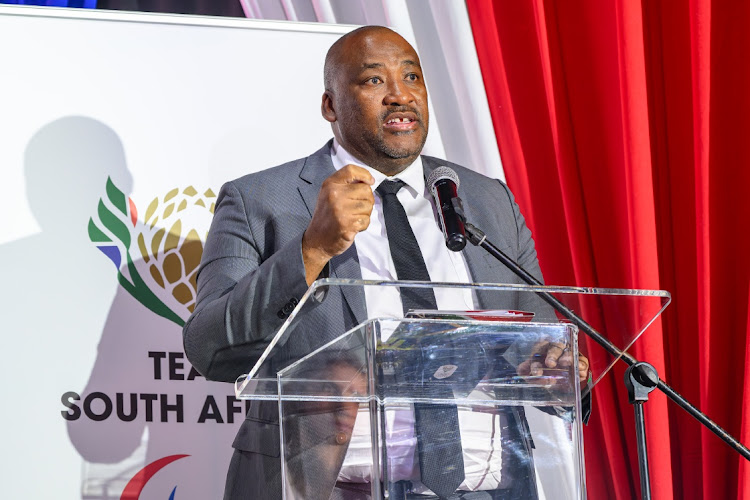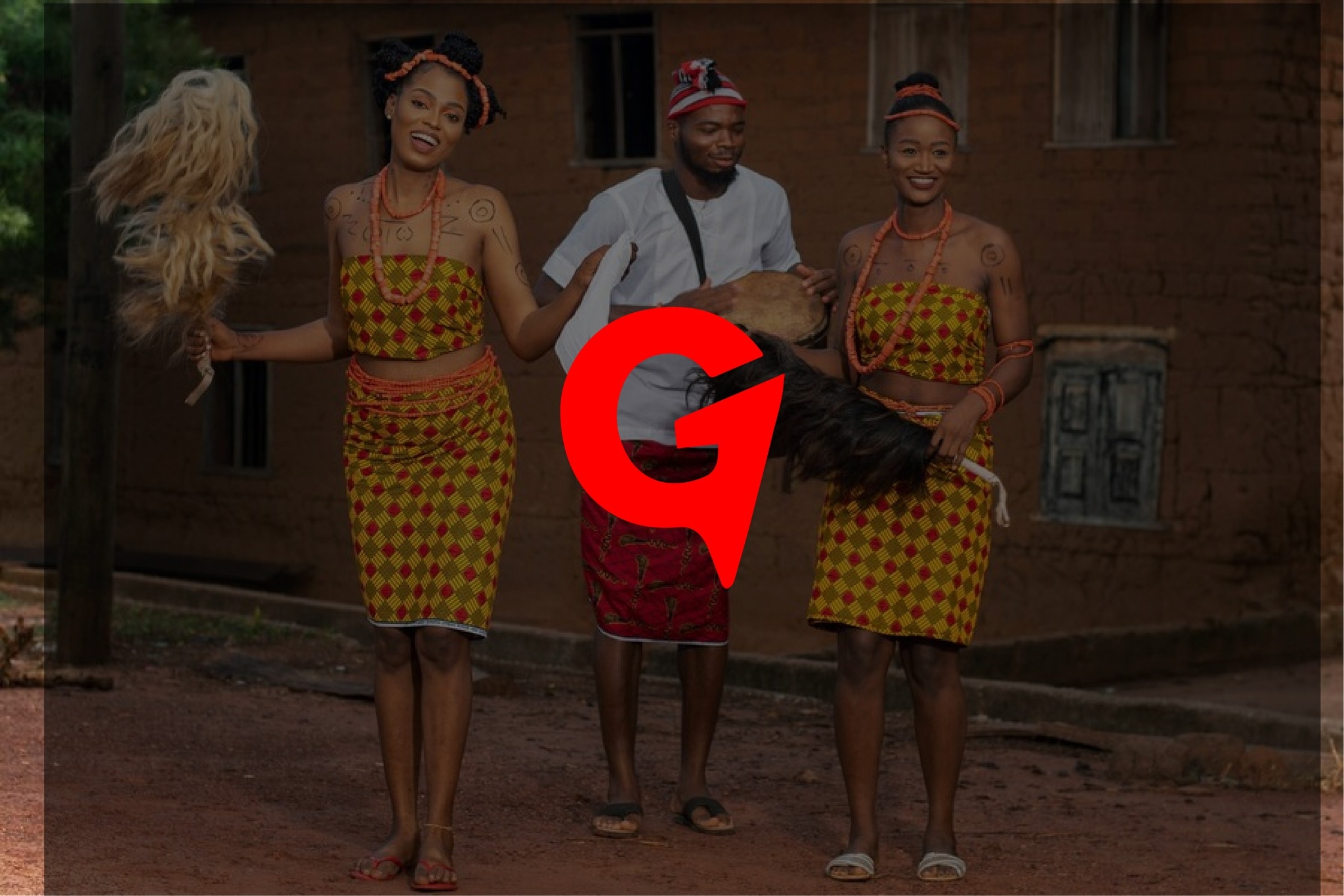By Ribelatti Feragummi
South African Sports, Arts and Culture Minister Gayton McKenzie’s rise from a self-confessed “bantiti” to one of the most exciting and controversial political figures in South Africa’s post-apartheid government is nothing short of miraculous. His story is one of redemption, resilience, and relentless determination—a narrative that echoes the vibrancy, struggle, and ultimate triumph of South Africa’s music scene. From the dusty streets of Johannesburg’s townships to the world stage, our music has always told the story of our people. Now, as many pin their hopes and, yes, often unrealistic expectations on McKenzie to bring about radical change in various sectors, we turn to him for yet another monumental task—transforming our music scene into an international force.
The road ahead is murky, but Minister McKenzie, this is your guide. Below are 10 moves you can make to forever etch your name into the cultural fabric of South Africa’s music landscape.
1. Resuscitate Kwaito as a National Treasure
Kwaito, once the pulse of South Africa’s streets, has slowly faded into the background, overtaken by the rise of amapiano and gqom. Yet, kwaito remains an essential part of our musical identity, speaking to a generation that fought for freedom and self-expression. Minister McKenzie, you could lead the revival by sponsoring a national “Kwaito Revival Competition,” bringing back legendary producers and artists to mentor the youth. Take notes from the global resurgence of genres like jazz and funk—Kwaito, too, deserves its comeback tour. Position kwaito as the soundtrack of our freedom.
2. Create Amapiano and Gqom National Competitions
Amapiano and gqom have done what few genres can: they’ve united South Africa across racial, social, and geographic divides. To ensure these genres maintain their trajectory, we propose “The Great Amapiano Challenge” and “Gqom Kings & Queens Competition“—nationwide contests for producers and artists. These competitions can be linked to major national events, such as sporting matches or public holidays, ensuring they stay culturally relevant. Look at how countries like the United States have linked hip hop to basketball or Latin music to international dance competitions. The winners would not only receive financial rewards but also be aligned with international collaborations.
3. South Africa’s Theme Song Competitions for Sports
South Africa’s music has long been intertwined with our sporting victories. It’s time to formalize that relationship. You could introduce an annual competition to create official theme songs for our national sports teams—rugby, cricket, football, and athletics. The winning producers and artists could stand to be rich for life, as their songs would play on every platform, from TV ads to international tournaments. The global appeal of such an initiative cannot be overstated. Just as FIFA has its official World Cup songs, we could have our own iconic anthems that amplify our sporting spirit and musical genius.
4. Champion a School Hip Hop and Dance League
Our youth are the future of South Africa’s cultural legacy. Tap into their energy by creating The Best School Hip Hop Group Competition and Best School Dance Group Competition. These leagues would not only keep kids off the streets but would also develop their talents in music and dance—disciplines that can open doors to lucrative international careers. Look at South Korea’s K-pop stars, who began as schoolchildren honing their craft in youth leagues. With government support, our school competitions could produce global stars, uniting education with artistic expression.
Here’s an enriched and more inclusive version of point 5:
5. Promote the Evolution of Mbaqanga, Afro Pop, and Other Cultural Gems
Mbaqanga and Afro Pop, alongside the cultural treasures of Morupelo Cultural Music of Mapulaneng in Bushbuckridge and Xigaza of Giyani in Limpopo, have long been pillars of our musical identity. However, they’ve struggled to gain the global recognition they truly deserve. South Africa’s sonic landscape is also graced with the undeniable flavors of Maskandi, Isicathamiya, and Boeremusiek, genres deeply rooted in our nation’s diverse cultural heritage.
Minister McKenzie, you have the power to bring these rich musical traditions to the forefront by encouraging producers to modernize them. Consider providing grants to innovative artists who can fuse traditional sounds with contemporary global beats, much like what Afrobeats has achieved in Nigeria, now a dominant global force. South Africa’s afro pop, mbaqanga, and our other cultural gems could experience a similar resurgence with the right investment, amplifying our music on the world stage while staying true to our roots. With talented and visionary producers at the helm, these genres could rise to international prominence, showcasing the beauty and complexity of our nation’s sound.
6. Introduce Film Sponsorships Based on Iconic South African Songs
Imagine films inspired by South Africa’s most iconic tracks—Mandoza’s “Nkalakatha,” Mgarimbe’s “Sister Bethina.” These songs and traditions are more than just music; they are the soul of a nation. By sponsoring films based on these sounds, you would not only preserve their legacy but also introduce new generations to their cultural significance. These films could become box office hits, following in the footsteps of international successes like “Bohemian Rhapsody” and “Straight Outta Compton,” which immortalized their respective music legends.
7. Sponsor Annual Gospel Explosion Events
Gospel music, one of the most beloved and enduring genres in South Africa, has long uplifted the nation’s spirit, especially during trying times. An annual Gospel Explosion festival, featuring choirs from across the country, could provide a platform for gospel artists to gain international exposure. Benchmark this on gospel festivals in the United States, which have launched the careers of artists like Kirk Franklin and Yolanda Adams. South African gospel artists have the talent to rise to the same international acclaim.
8. Build a Government-Backed Music Distribution Platform
One of the biggest challenges South African artists face is access to international markets. You could spearhead the creation of a government-backed digital distribution platform that allows local artists to easily distribute their music globally. Such a platform could be the first of its kind, promoting South African talent to the world without the traditional gatekeepers of the music industry. This could include deals with major streaming platforms like Spotify and Apple Music to showcase South African music on global playlists.
9. Establish the South African Music Museum
Imagine walking through a museum that celebrates the history and influence of South African music, from the early days of kwela and marabi to the present-day dominance of amapiano and hip hop. You could lead the charge to establish the South African Music Museum, where the stories behind our greatest hits and artists are immortalized for future generations. Such a museum would be an educational and cultural landmark, attracting visitors from across the world and solidifying our status as a global musical powerhouse.
10. Create a National Songwriting Academy
South Africa is brimming with raw talent, yet many artists lack the training to fully realize their potential. You could establish a National Songwriting Academy, offering workshops, mentorship programs, and industry connections for young songwriters. The academy would focus on nurturing talent across all genres, from hip hop and gospel to amapiano and house. By training the next generation of hitmakers, you would be ensuring a steady stream of world-class music that continues to put South Africa on the map.
Food for Thought
Minister McKenzie, the task before you is monumental, but the rewards are immeasurable. The road ahead may be filled with challenges, as many will pin their hopes and expectations on you. However, through these bold and practical steps, you have the potential to not only transform South Africa’s music industry but to elevate it to international prominence. You can create a legacy that transcends politics—a legacy that inspires, empowers, and enriches the lives of South Africans, while also showcasing our rich musical heritage to the world. This is your moment to leave an indelible mark on the cultural fabric of our nation. Gazankulu.com
About the Author
Ribelatti Feragummi is a hip hop artist with more than 25 years in the genre. A former member of the Madd Froggz Squad hip hop group formed in 1995, he works as a freelance journalist by day and a hip hop tokoloshi by night. His recent single, Philosophy Anthem, is taking social media by storm, pushing the boundaries of South African hip hop.











Add Comment